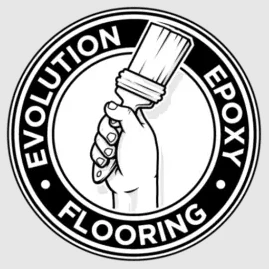All You Need To Know About Maintenance Of Your Epoxy Flooring

If you’ve just installed an epoxy floor - or want to know about the cleaning and maintenance requirements of epoxy floors before signing on the dotted line - you’ll find the following information useful.
This guide outlines effective cleaning and maintenance protocols which will minimise the risk of accidental damage to the epoxy coating and ensure that you get optimum performance and longevity from your investment.
It is crucial to remember that any newly laid epoxy floor needs time to cure and it must not be washed with water until the curing cycle is complete. The time requirement depends on the nature of the application, but your professional epoxy flooring company will advise you on the timeline.
How to clean an epoxy floor
1. Clean spills immediately
Epoxy flooring is extremely durable and its impermeable surface is resistant to most substances. That’s why it’s the first choice for so many industrial applications such as warehouses, meat and food processing plants and factories. While it is unlikely that spills will cause deep mechanical damage to the floor, it is important that every spill is cleaned up immediately and that substances don’t ‘settle’ on the surface. Aggressive chemicals, fuel and oils may change the colour of the flooring, so it is really important to react immediately if there is a spill.
2. Sweep dust and debris away regularly
We recommend a regular programme of cleaning and sweeping to prevent dust or dirt from accumulating on the surface. Gritty particles can act as an abrasive which may result in premature ageing of the surface. A mop or a broom with soft bristles is ideal for this purpose.
3. Use the right cleaning materials
Non slip epoxy floors are designed to withstand temperature extremes and rough treatment in terms of heavy equipment and high foot traffic. However, they don’t need rough treatment when it comes to care and cleaning.
Only use warm water for cleaning and make sure that the chemicals or additives you intend using have been recommended by the flooring company.
If you choose the right cleaning materials, your epoxy flooring will stand the test of time.
Don’t use:
- Acidic cleaners including vinegar and citrus-based products
- Abrasive chemicals
- Strong alkali-based cleaners
Do use:
- Cleaners recommended by the professionals who installed the floor
- A pH neutral cleaner. Remember to always follow the manufacturer’s recommended dosage
- You can make a simple and effective DIY cleaning product by combining 125mls ammonia with four litres of warm water
4. Give the floor a deeper clean with a non-abrasive scrubber
For smaller spaces or obstinate spills, you can use a sponge scourer, a plastic scraper or a soft squeegee-type of mop. Avoid anything with hard bristles or sharp edges as these will act like sandpaper and scratch the floor’s surface.
An industrial floor scrubber can be used to clean bigger expanses of floor, but it is imperative that the right type of equipment is used and the right operating procedures followed.
A regular cleaning and maintenance regime is your best insurance policy for the long-term high-performance of your epoxy floor. Always check with the professionals if you have any concerns about spills, cleaning products or cleaning equipment and always follow the manufacturer’s recommendations.
Remember, a regular routine of cleaning will ensure that your epoxy floor remains:
- Hygienic and sanitary
- Compliant with industrial health and safety requirements
- Safe for personnel to walk on
- Acid-resistant
- Non-greasy
- Non-slip
- Scratch free
- True to its original colour and aesthetics
- A high quality, high-performing investment over the long-term
- Polished Concrete & Polishing & Grinding in Australia
- Polished Concrete & Polishing & Grinding in Adelaide
- Polished Concrete & Polishing & Grinding in Brisbane
- Polished Concrete & Polishing & Grinding in Inner North
- Polished Concrete & Polishing & Grinding in Hobart & South East
- Polished Concrete & Polishing & Grinding in Melbourne
- Polished Concrete & Polishing & Grinding in Darwin
- Polished Concrete & Polishing & Grinding in Sydney
- Polished Concrete & Polishing & Grinding in Perth
